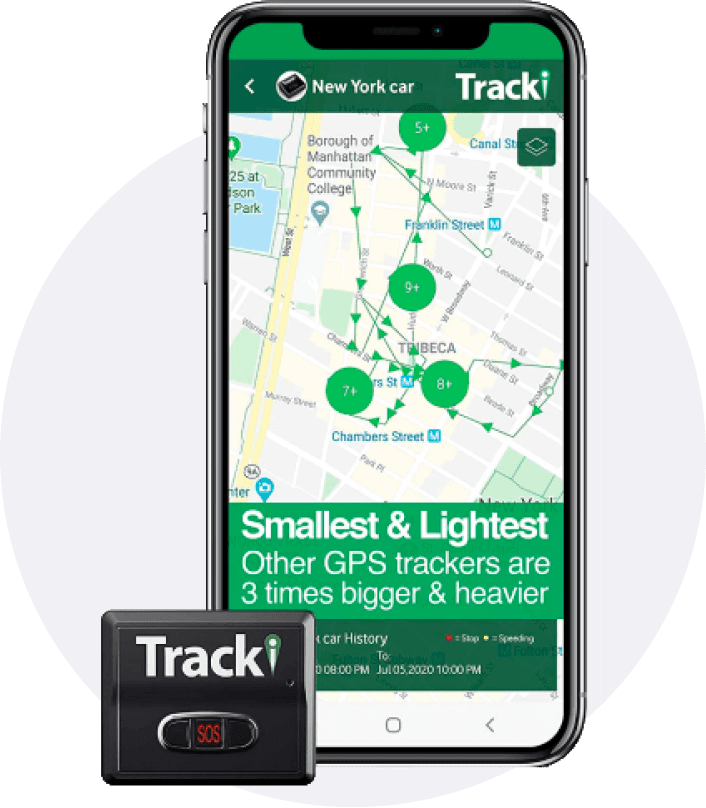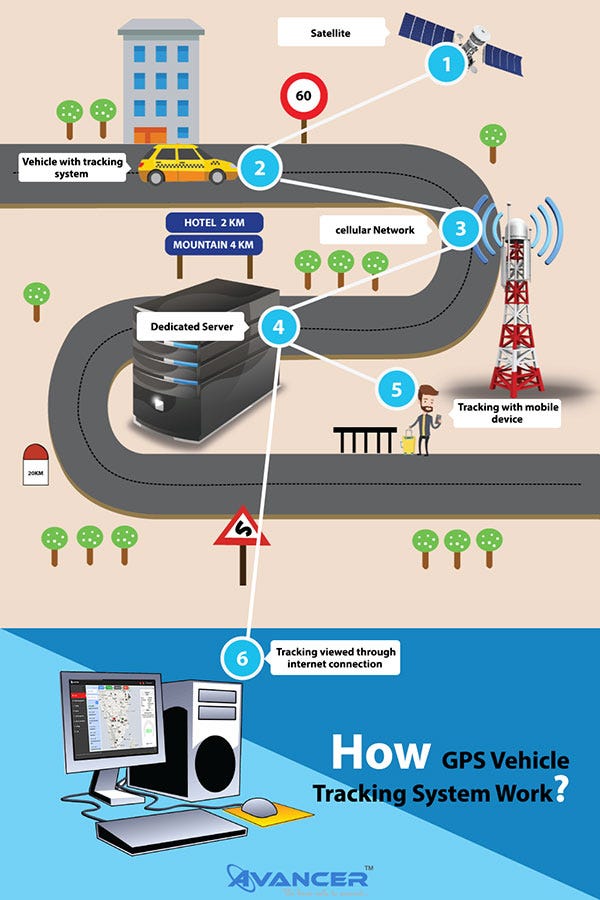Understanding GPS Tracking: Modern Technology, Applications, and Benefits
Understanding GPS Tracking: Modern Technology, Applications, and Benefits
Blog Article
Navigating the Future of GPS Tracking: Developments, Obstacles, and Opportunities Ahead
As we stand at the crossroads of technological advancements and social ramifications, the landscape of general practitioner tracking is poised for a transformative journey in advance. The development of GPS modern technology has actually been fast, ushering in a new age of real-time tracking capacities that assure unmatched levels of accuracy and effectiveness. Nevertheless, with fantastic innovation comes fantastic duty, as data privacy problems impend huge and safety challenges in general practitioner monitoring raise important concerns concerning safeguarding sensitive info. In the middle of these challenges exist concealed possibilities waiting to be explored, supplying a glance into the untapped possibility of a market at the brink of modification.
Development of GPS Modern Technology
Created for military functions, GPS modern technology has progressed to become an ubiquitous device in various fields, consisting of transportation, logistics, agriculture, and personal navigation. Early GPS systems were characterized by minimal protection, lower precision, and bulkier equipment needs.
One secret turning point in the development of GPS technology was the growth of Discerning Accessibility (SA) in the 1990s, which deliberately broke down the accuracy of noncombatant general practitioner signals. The discontinuation of SA in 2000 significantly improved GPS accuracy for civilian individuals. Subsequent improvements, such as the deployment of added satellite constellations like Galileo and BeiDou, have further enhanced GPS protection and precision, making it a crucial tool in day-to-day life. As GPS innovation remains to evolve, we can expect further enhancements in insurance coverage, accuracy, and efficiency, opening up new possibilities for technology and applications throughout different industries.
Real-Time Tracking Developments
Building on the developments in GPS modern technology that have actually revolutionized accuracy and insurance coverage, real-time tracking has become an essential location of technology with extensive implications across various industries. Real-time tracking improvements make it possible for organizations and businesses to check properties, workers, and vehicles instantly, giving useful insights for decision-making procedures - gps tracking. By leveraging real-time information, business can improve operational effectiveness, enhance customer care, and ensure the safety and security of their properties
One of the key developments in real-time tracking is the integration of expert system and artificial intelligence algorithms, which allow anticipating analytics and anomaly detection. These capabilities permit aggressive upkeep scheduling, route optimization, and risk reduction strategies. The evolution of real-time tracking systems has actually led to the advancement of mobile applications and personalized dashboards, encouraging individuals to accessibility important info anytime, anywhere.
Information Privacy Issues

Data privacy problems include numerous elements, consisting of the storage, this sharing, and retention of location information. Companies should execute durable security steps to safeguard general practitioner tracking information from cyber risks and information breaches. Clear plans pertaining to data collection techniques and the purpose of tracking are important to construct depend on with consumers and ensure conformity with data protection regulations.

Safety Challenges in GPS Monitoring
Dealing with data privacy problems in GPS monitoring is intricately linked to mitigating the safety tests that emerge from potential vulnerabilities in the technology. One of the main security obstacles in GPS tracking is the risk of unapproved access to delicate location information.

Another protection obstacle is the possibility for spoofing or obstructing general practitioner signals. By interfering or broadcasting false signals with genuine ones, destructive actors can trick GPS receivers and adjust area data. This postures threats not just for specific users yet also for military and governmental applications that rely upon exact positioning details. Implementing durable security, authentication procedures, and signal confirmation methods are vital steps in dealing with these safety challenges in GPS monitoring.
Arising Opportunities in the Market
The expanding field of general practitioner tracking modern technology offers a myriad of encouraging chances for industry growth and development. One vital chance exists in the growth of GPS tracking applications beyond typical sectors. Industries such as logistics, transportation, and fleet management have actually been very early adopters of general practitioner technology. Arising opportunities are currently arising in locations like healthcare, farming, and ecological tracking. For instance, GPS monitoring can transform client treatment by enabling remote tracking of essential indications and ensuring prompt medical support. In farming, general practitioner technology can maximize crop monitoring methods and boost total return. Moreover, environmental surveillance can profit from GPS monitoring by making it possible for real-time information collection for environment study and preservation initiatives.
An additional substantial possibility in the GPS monitoring market is the combination of sophisticated analytics and fabricated intelligence. By leveraging these innovations, companies can obtain important insights from GPS data to enhance operational efficiency, enhance decision-making processes, and offer individualized solutions to consumers. Additionally, the boosting need for linked tools and IoT services offers a ripe opportunity for GPS monitoring business to expand their offerings and create ingenious options that deal with a much more connected globe. By profiting from these arising chances, GPS monitoring firms can position themselves for sustained development and success in the vibrant landscape of the market.
Final Thought
Finally, the future of GPS monitoring is marked by constant advancement YOURURL.com and technology in technology. Real-time monitoring developments and arising chances existing promising prospects for the sector. Nonetheless, information privacy problems and safety obstacles remain considerable obstacles that require to be resolved. As the market relocates onward, navigating these difficulties will be crucial to make sure the ongoing growth and success of GPS tracking modern technology.
With terrific development comes terrific obligation, as information privacy concerns loom big and safety and security challenges in General practitioner tracking raise important questions concerning securing delicate information.With the quick expansion of GPS tracking modern technology in different industries, addressing information privacy problems has come to be an important imperative for both businesses and consumers alike. The collection of area information through General practitioner monitoring elevates significant personal privacy concerns, as it makes it possible for the tracking of people' activities and actions. Companies utilizing GPS tracking need to prioritize guarding this data to avoid unapproved gain access to or abuse that might jeopardize individuals' privacy legal rights.
Businesses have to apply durable protection actions to secure GPS monitoring information from cyber risks and data breaches.
Report this page